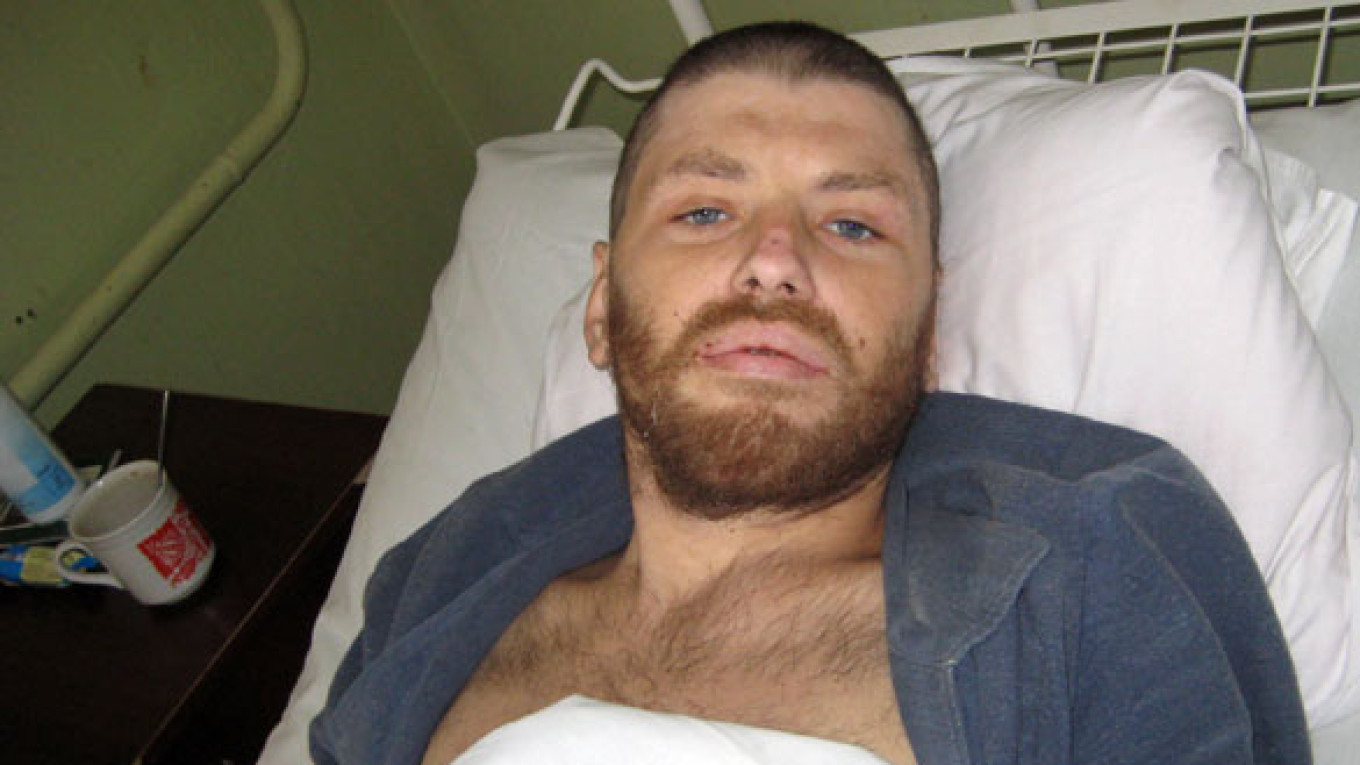Just a few weeks ago, Anatoly Varvyansky still had feet.
But in the midst of the recent cold snap, he made an ill-fated decision. "I met a friend, we drank," he confessed reluctantly in a recent interview from his bed in a local hospital.
After passing out drunk in the streets of Moscow, where he makes his home, someone stole his boots, Varvyansky said. His frostbitten feet could not be saved. Amputation was the only option.
Varvyansky is one of the dozens of casualties of frostbite and hypothermia hospitalized daily in Moscow during the winter months. Like Varvyansky, most of these victims are among the thousands of homeless living on the streets of Moscow.
But thanks in part to increased efforts by City Hall and private charity organizations to protect the homeless from the cold, the human toll of freezing temperatures in Moscow appears to be declining.
Hypothermia deaths in Moscow have declined steadily over the past decade, from 1,130 deaths in 2001 to 359 in 2008, according to latest available data from the city health department.
The reports on the department's web site do not indicate the reasons for the decline or how many of the victims were homeless. But Andrei Pentyukhov, City Hall's point man for providing social services to the homeless, said his team has intensified its efforts to combat cold-related injuries in recent years, including both weekly foot patrols and daily car patrols to find potential victims before it is too late.
These patrols offer homeless people immediate medical assistance and, if necessary, transport to a hospital or homeless shelter, Pentyukhov said. Some are later moved to homes for the disabled or elderly, he said.
The patrols also distribute lists among the homeless with addresses for the city's eight shelters, which can accommodate about 1,500 people, Pentyukhov said.
Life for Moscow's homeless is, of course, not easy. But it gets much more difficult when the frost hits.
Several years ago, homeless people could warm up in the stairwells or basements of apartment buildings or seek refuge in manholes leading to central heating pipes, said Alexander Kabardin, who has lived on the streets of Moscow for seven years.
Now almost every apartment building has a door code, the basements are locked, and the manholes have been welded shut, said Kabardin, who also had parts of his frostbitten legs amputated in the same hospital ward as Varvyansky.
Most of the homeless who seek refuge in shelters are those who have no permanent registration or who are formally registered in Moscow but have been kicked out by relatives. These people receive help in seeking employment and permanent housing.
"If a person wants to lead a normal life, a shelter will help him get out of his dire circumstances," Pentyukhov said.
Authorities are capable of reducing the number of homeless people, but legislation is needed to foster cooperation between state agencies tasked with assisting those on the street, said Natalya Kuznetsova, who oversees assistance for the homeless at the charity organization Miloserdie, or "Mercy." Tackling alcoholism nationwide, as President Dmitry Medvedev has vowed, and boosting economic development in the regions is also crucial, Kuznetsova said.
Many of the homeless in Moscow are migrants from poorer Russian regions and former Soviet republics who came here to work but ended up losing their jobs and documents.
They have homes in their native regions but no means to return.
Varvyansky, 45, said he actually has a place to live in his native Ukraine but that he has lived on the streets of Moscow for the last six months after he quit his construction job in the Moscow region and had his documents stolen.
"I would have returned home if I could," he said.
A Message from The Moscow Times:
Dear readers,
We are facing unprecedented challenges. Russia's Prosecutor General's Office has designated The Moscow Times as an "undesirable" organization, criminalizing our work and putting our staff at risk of prosecution. This follows our earlier unjust labeling as a "foreign agent."
These actions are direct attempts to silence independent journalism in Russia. The authorities claim our work "discredits the decisions of the Russian leadership." We see things differently: we strive to provide accurate, unbiased reporting on Russia.
We, the journalists of The Moscow Times, refuse to be silenced. But to continue our work, we need your help.
Your support, no matter how small, makes a world of difference. If you can, please support us monthly starting from just $2. It's quick to set up, and every contribution makes a significant impact.
By supporting The Moscow Times, you're defending open, independent journalism in the face of repression. Thank you for standing with us.
Remind me later.


